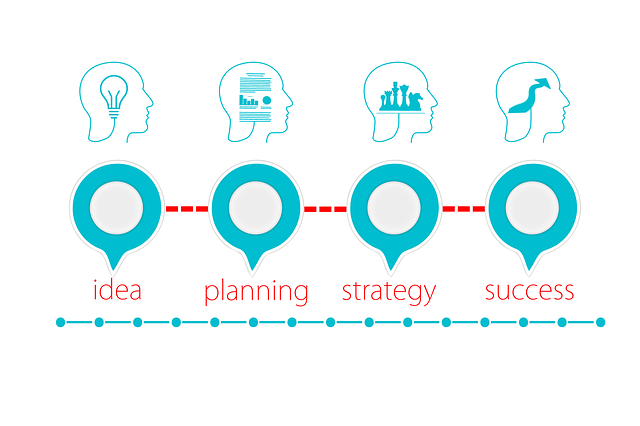Event planning for local businesses is a multifaceted discipline that involves orchestrating corporate events with creativity and precision to meet organizational goals and leave a lasting impression. Skilled planners harmonize imaginative concepts with detailed logistics, ensuring events are engaging, thematic, and purposeful. They select venues that resonate with the company's values, coordinate with local catering services for authentic regional experiences, and manage every detail to perfection. The expertise of these planners lies in their ability to anticipate issues and prepare contingency plans, maintaining a smooth flow even when unexpected challenges arise. Event planning is not just about organizing gatherings; it's about creating networking opportunities and fostering business growth through meticulously managed events that reflect the ethos of local businesses. A strategic approach focuses on selecting venues that align with the event's objectives, whether for conferences, workshops, or product launches. The setup must be versatile, enhancing participant engagement with an ambient atmosphere, comfortable seating, and branded decor. Utilizing local vendors not only enriches the event with a sense of place but also supports the community. Effective communication, staff training, and technology integration are key to ensuring a seamless guest experience that can turn attendees into advocates for the business. By mastering these aspects of event planning for local businesses, companies can craft memorable events that build goodwill and solidify their status as experts in the field.
navigator in the dynamic landscape of event management, mastering the art of corporate function orchestration is a cornerstone of local business success. This article delves into the nuances of expertly planning these events, from venue selection and setup to crafting an unparalleled guest experience. Leveraging technology and innovative solutions becomes paramount in this endeavor, ensuring seamless execution and memorable interactions for all attendees. Embark on a journey through the pivotal stages of event planning for local businesses, where every detail counts towards conducting corporate functions smoothly.
- Mastering the Art of Event Planning for Local Businesses: Ensuring Corporate Functions Run Without a Hitch
- Venue Selection and Setup: A Strategic Guide for Local Business Events
- Crafting an Impeccable Guest Experience: Tips for Local Business Event Management
- Leveraging Technology and Innovative Solutions in Local Business Event Planning
Mastering the Art of Event Planning for Local Businesses: Ensuring Corporate Functions Run Without a Hitch

Mastery in event planning for local businesses is a multifaceted endeavor that culminates in seamless corporate functions. The intricacies of this art form demand a strategic approach, blending creativity with logistical precision to orchestrate events that resonate with attendees and align with the company’s objectives. A meticulous planner adept at event planning for local businesses will consider every detail from venue selection to catering services, ensuring each element complements the theme and purpose of the gathering. By leveraging local resources effectively, these professionals can source vendors who understand the nuances of the regional market, thereby enhancing the guest experience with a personalized touch. The success of corporate events hinges on the ability to anticipate potential challenges and develop contingency plans that maintain the flow of activities, even in unexpected circumstances. This is where the expertise of seasoned event planners becomes invaluable, as they navigate the dynamic landscape of local business event planning with a keen eye for detail, fostering an environment where connections are made, ideas are exchanged, and businesses flourish through the power of collective engagement.
Venue Selection and Setup: A Strategic Guide for Local Business Events

When local businesses plan corporate events, selecting the right venue and ensuring its setup align with the event’s objectives is paramount for a successful gathering. The strategic guide for venue selection begins with understanding the purpose of the event. Is it a conference, workshop, product launch, or team-building retreat? Each type of event demands a different environment, from an intimate boardroom setting to a spacious ballroom for larger assemblies. Consideration must be given to the accessibility of the location, its proximity to key employees and clients, and the availability of necessary amenities such as Wi-Fi, audio-visual equipment, and parking facilities.
Upon settling on a venue that ticks all the logistical boxes, the focus shifts to the setup. This phase is where the vision for the event takes shape. It involves arranging seating, staging, lighting, and multimedia tools to facilitate engagement and interaction among participants. The layout should foster the desired atmosphere, whether it’s conducive to focused learning or networking and socializing. Catering to various sensory experiences, including ambient music, comfortable seating, and branded decor, can significantly enhance attendee satisfaction. Furthermore, the setup should be adaptable for different activities throughout the event, ensuring a seamless flow from one agenda item to another. Event planning for local businesses is not just about finding a space; it’s about creating an environment that amplifies the event’s goals and leaves a lasting impression on all attendees.
Crafting an Impeccable Guest Experience: Tips for Local Business Event Management

Crafting an impeccable guest experience is a cornerstone of successful event planning for local businesses. The key to achieving this lies in meticulous attention to detail and a deep understanding of the target audience’s preferences. To begin with, local business event planners should prioritize personalization in their approach. Understanding the unique demographic of the local community can inform every aspect of the event, from thematic choices to menu selection. Utilizing local vendors not only supports the local economy but also brings authenticity and freshness to the experience.
Effective communication is another critical component. Clear messaging about the event’s logistics—such as date, time, venue, and parking options—helps attendees feel confident and informed. Moreover, ensuring that staff are well-trained, courteous, and equipped with the necessary information to assist guests is essential for maintaining a seamless flow throughout the event. Local business event managers should also consider the use of technology, like event apps or digital check-ins, to streamline the registration process and enhance the overall efficiency of the event. By focusing on these elements, local businesses can create memorable events that leave a lasting positive impression on guests, ultimately fostering goodwill and repeat attendance.
Leveraging Technology and Innovative Solutions in Local Business Event Planning

Effective event planning is a cornerstone of successful corporate functions, particularly for local businesses seeking to make a lasting impression. This article has outlined a comprehensive approach to ensuring these events are executed flawlessly, from the strategic selection and setup of venues to crafting an impeccable guest experience. By leveraging technology and innovative solutions, local businesses can enhance their event management capabilities, offering seamless experiences that leave attendees with lasting positive impressions. In mastering the art of event planning for local businesses, companies can elevate their profile and foster stronger community connections. With the insights provided, local businesses are now well-equipped to orchestrate smooth and impactful corporate functions that not only meet but exceed expectations. By incorporating these strategic event planning tips, businesses can ensure that every detail, from logistics to attendee engagement, aligns with their overarching goals. This not only strengthens their brand presence but also builds trust and loyalty among clients and stakeholders. Ultimately, a well-executed event becomes a powerful tool for driving growth and solidifying a business’s position within the local community.
